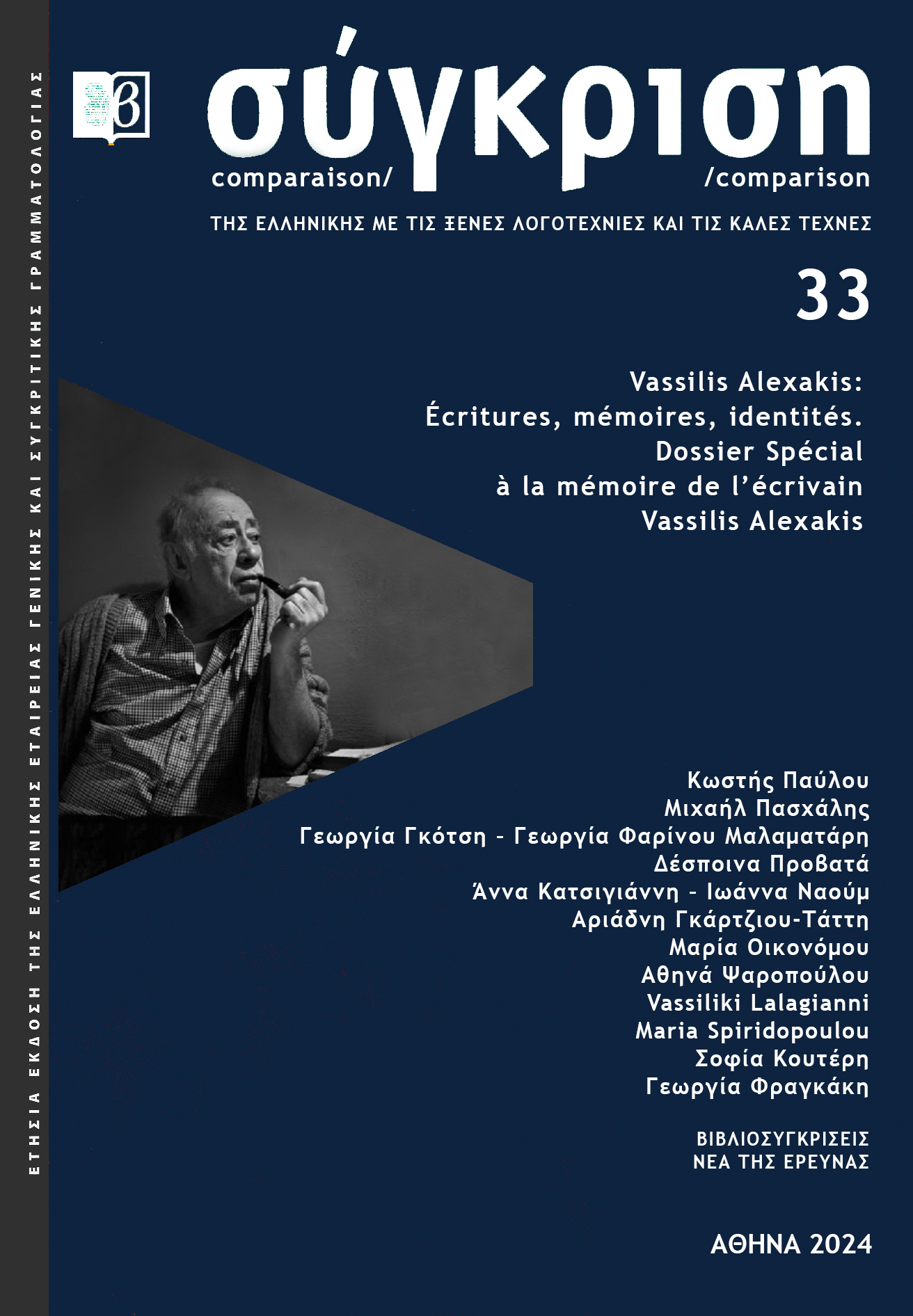Ανάλυση του λόγου της λογοτεχνίας μέσω της υφολογίας σωμάτων κειμένων Θεματικές και διαχρονική αλλαγή
Abstract
There has been extensive work on literary discourse in Digital Humanities (DH), although not with respect to Greek. This paper develops an application of corpus stylistics on particular works of Greek literature. An overview of corpus stylistics and existing applications is followed by a discussion of how specific methodological tools can aid to the analysis of themes in the work of poets such as Karyotakis and Polydouri on the basis of frequency lists and concordances. Similar tools are applied to the diachronic analysis of themes and linguistic choices in the poetry of Livaditis and the novels of Samarakis with a view to understanding trends in their work, as well as its relation to overall language change.
Article Details
- How to Cite
-
Φραγκάκη Γ. (2025). Ανάλυση του λόγου της λογοτεχνίας μέσω της υφολογίας σωμάτων κειμένων: Θεματικές και διαχρονική αλλαγή. Comparison, (33), 352–377. Retrieved from https://ejournals.epublishing.ekt.gr/index.php/sygkrisi/article/view/37402
- Issue
- No. 33 (2024)
- Section
- Articles

This work is licensed under a Creative Commons Attribution-NonCommercial-ShareAlike 4.0 International License.
Authors who publish with this journal agree to the following terms:
- Authors retain copyright and grant the journal right of first publication with the work simultaneously licensed under a Creative Commons Attribution Non-Commercial License that allows others to share the work with an acknowledgement of the work's authorship and initial publication in this journal.
- Authors are able to enter into separate, additional contractual arrangements for the non-exclusive distribution of the journal's published version of the work (e.g. post it to an institutional repository or publish it in a book), with an acknowledgement of its initial publication in this journal.
- Authors are permitted and encouraged to post their work online (preferably in institutional repositories or on their website) prior to and during the submission process, as it can lead to productive exchanges, as well as earlier and greater citation of published work (See The Effect of Open Access).



